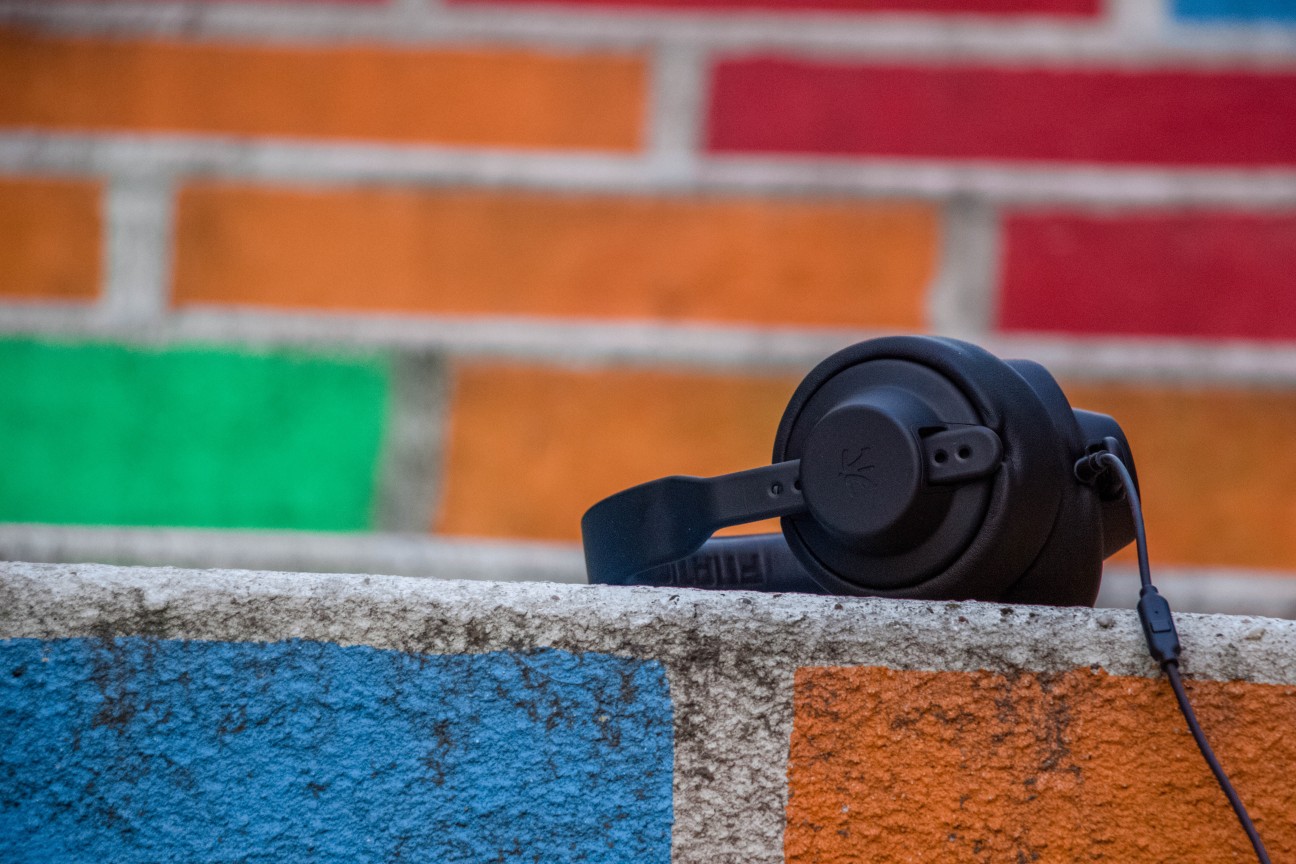The reason we meditate is to clear our minds of distractions. May it be to focus on ourselves, our emotions, our feelings, our surroundings, our thoughts, our stress, or maybe even to improve our spiritual health. We all may have our own separate reasons for practicing meditation, regardless, a majority of us do so in order to enter a state of peace.
However, from time to time, we encounter hiccups while trying to tap into this “state of peace.” Sometimes, it’s just too noisy, other times, we just can’t focus, and there are times that we really just can’t enter the “zone.”
And so, some of us may be wondering, “Can I Meditate with Music?”
Yes! If music can soothe even the savagest of beasts, just imagine the benefits that music can do for mere mortals…
First things first, imagine yourself meditating at a quiet park. It’s pretty easy to visualize right? That kind of peace and serenity is the kind of atmosphere you’re going to be needing in order to meditate. However, try thinking of what’s it like to meditate in the middle of a festival. The cheering crowd, the multitude of instruments, the happy voices of the people, and the variety of ambient sounds coming from everywhere. That kind of atmosphere won’t be getting you the clear mind you’re aiming for. The same thing goes for music.
You’d want to listen to something peaceful and serene to help you meditate. You should try to avoid loud sounds, exciting songs, songs which bring strong emotions, and catchy tunes that may even make you want to sing or dance along.
Table of Contents
Binaural Beats
Binaural beats would be my number 1 undisputed music for meditation.
Binaural beats are rather hard to describe as they’re a unique kind of music. If you look it up online you’ll be seeing the following definition, “A binaural beat is an auditory illusion perceived when two different pure-tone sine waves, both with frequencies lower than 1500 Hz, with less than a 40 Hz difference between them, are presented to a listener dichotically (one through each ear).”
Quite a mouthful huh? Simply put, binaural beats are a kind of music that require headphones, and that each individual earpiece would be producing different sounds. And when both sounds enter your ears, an auditory illusion is produced. The best way to explain it would be to show you an example (make sure you have headphones to fully enjoy the experience).
Now that you know what binaural beats are, let’s talk about their benefits. The cool thing is that they’re not only beneficial for meditation, they can also help you out when you’re just trying to sleep or study.
Studies have also shown that binaural beats can you help you with the following:
- Enhanced relaxation
- Reduced stress and anxiety
- Improved focus
- Foster creativity and positive moods.
If you’re an “I won’t believe it until I see it” kind of guy or gal, check this link out. They’ve included a handful of research which were done to support the above claims: https://www.healthline.com/health/binaural-beats#potential-benefits
But hey, that’s enough about binaural beats. What about meditation music? What can it offer me?
Meditation Music
Simply put, meditation music was tailor made to help people meditate. They are the type of music which aims to put the listener into a more relaxed and peaceful place. Meditation music, similar to binaural beats, does not have lyrics as they may cause distraction. Some however, contain instructions to help you out with your meditation.
Meditation music with nature theme
Just like binaural beats, meditation music also has multiple benefits:
- Reduce stress and anxiety
- Improve sleep
- Deeper meditation
- Improves physical health
- Improves focus and concentration
- Improves mood
Classical Music
Unlike the 2 types I’ve mentioned before, classical music actually has lyrics but a large majority of them do not. Back then, before I discovered binaural beats and meditation music, it was classical music that I listened to whenever I was studying, or when I just needed to clear my head.
Classical music originated from the classical period (mid 1700s to early 1800s), and is defined by the Oxford dictionary as a “serious or conventional music following long-established principles rather than a folk, jazz, or popular tradition.”
Most of you would probably know Mozart, Beethoven, Chopin, or Bach. They’re all famous composers during the classical period who are responsible for a large amount of renowned classical music.
Now, among the 3 types of music I’ve mentioned. Classical music actually has the most benefits which have been researched on.
List of known benefits:
- Reduce Your Blood Pressure
- Enhance Your Memory
- Relieve Your Pain
- Improve Your Quality of Sleep
- Fight the Symptoms of Depression
- A Spike in Creativity
- Classical Music Makes You Smarter?!
- Reducing Stress Levels
- Relieve Symptoms of Anxiety
- Increase Your Productivity
- Boost Your Brain Power
- Improve Your Social Connections
- Calm Your Children Down
- Let’s Put a Smile on That Face!
- Take Your Gym Training to the Next Level!
- Invoke All Kinds of Emotions
- Enhance Your Baby’s Cognitive Skills
Mozart is my go to for focus sessions such as studying or work… No Adderral required.
So we know that listening to meditation music improves the way we are able to meditate. Not only is it able to reduce outside sound, it also provides us the necessary vibrations we need in order to improve concentration and focus.
So how does meditation music provide these benefits? Neuroscience, and a bit of a cause and effect would explain it. Listening to enjoyable music causes the production of happy hormones in the body (oxytocin and dopamine). The production of these hormones causes a positive boost in our mood.
Aside from that, this positive boost in our mood also reduces levels of stress and anxiety.. Which, in turn, allows us to focus more with our task at hand since there are less things that may worry or distract us.
Absolutely! Just make sure that you’re wearing a comfortable pair of headphones. You’d want to be able to relax and attain a state of serenity so that you can meditate properly, and you won’t be able to do that when your ears are hurting.
The whole point of listening to meditation music is to clear out distractions and to improve concentration. Now, not only does the music filter the outside noise, the headphones would also physically block the ambient noises from getting to your ear which would further improve your environment for meditating.
Not to mention that listening to music feels so much better when you’re wearing headphones. I’d suggest any headphones with strong soundproofing and high quality audio so that the experience becomes very immersive, but if you’re looking for a cheap alternative go check out the nearby music store for earbuds. Earbuds are a cheap-but-great alternative for headphones due to their shape allowing them to block outside noise.
Meditating is an experience that all of us should be delving into on a daily basis to become better at life. Tell us, how do you prefer to meditate? Is it with music? In silence?














